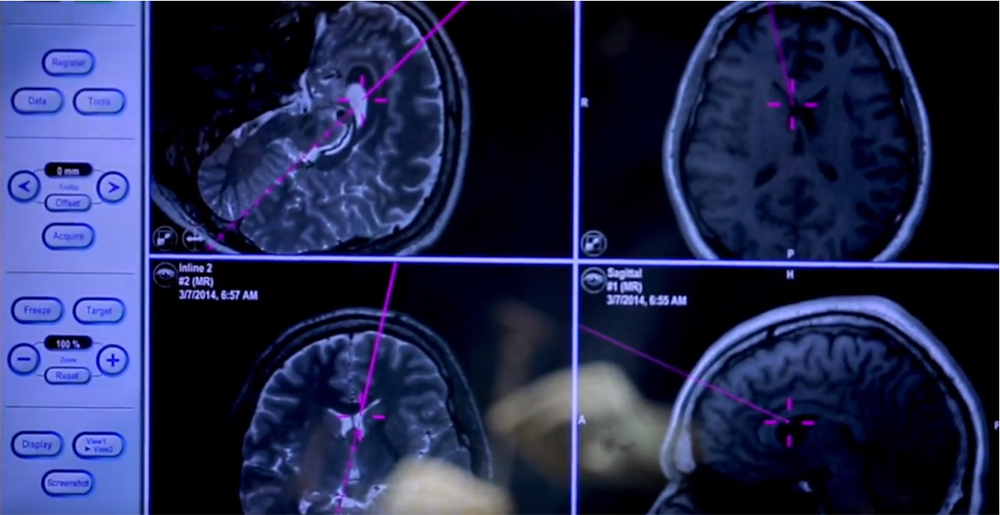
Colloid cysts are rare tumors that form inside one of the fluid-filled cavities (ventricles) of the brain. Although they are benign, colloid cysts are not always harmless. In some people, the cysts can block the circulation of cerebrospinal fluid (CSF) and cause hydrocephalus ("water on the brain"), leading to headache, nausea and vomiting, double vision, or seizures. In others, a colloid cyst may cause memory disturbances and behavioral problems. Find out more about colloid cysts and their surgical treatments.
Because colloid cysts are so rare, there is very little information about them. Here at Weill Cornell Medicine Neurological Surgery, we have one of the world’s largest single-institution experiences with colloid cysts, which puts us in a unique position for doing research on them. We are planning the first-ever colloid cyst registry, which will allow us to assemble comprehensive data on all patients, with or without treatment. From this colloid cyst registry, we will be conducting several clinical studies that need your support, including:
Do Colloid Cysts "Run in Families"?
It’s not clear what factors interact to produce colloid cysts, but there have been several reports of familial cases, suggesting that the cysts might have a genetic predisposition. So far there has been no study to investigate the possible link, but one of our current research protocols will do just that. If we establish a link, relatives of colloid cyst patients may be referred for a screening MRI - and an early diagnosis would allow patients to choose pre-emptive treatment. This not only spares them from developing symptoms, but it lets them avoid the low but real risk of sudden death. Moreover, the study will create a DNA bank from patients and their relatives for future genetic studies, which may result in a simple and affordable screening tool.
How Do Colloid Cysts Affect Neuropsychology and Quality of Life?
Some of the brain structures surrounding a colloid cyst are crucial for important tasks, most notably short-term memory. Even in patients who don’t seem to have symptoms, a colloid cyst may create pressure on those structures or cause intermittent blockage of the cerebrospinal fluid, which may lead to subtle, unrecognized symptoms. In addition, the majority of patients who have endoscopic removal of colloid cysts return to normal lives, but possible memory or cognitive changes after surgery have never been studied. Measuring any delicate changes before or after surgery would provide an accurate assessment of risk for patients contemplating treatment.
Both of these important studies need funding — funding that is not available to rare conditions like colloid cysts. Won’t you help?
Make a Donation Now
VIDEO: Dr. Mark Souweidane has probably performed more endoscopic procedures to remove a colloid cyst than any other neurosurgeon in the world. This video shows how the endoscopic surgery is done, starting with the smallest access point possible into the skull.